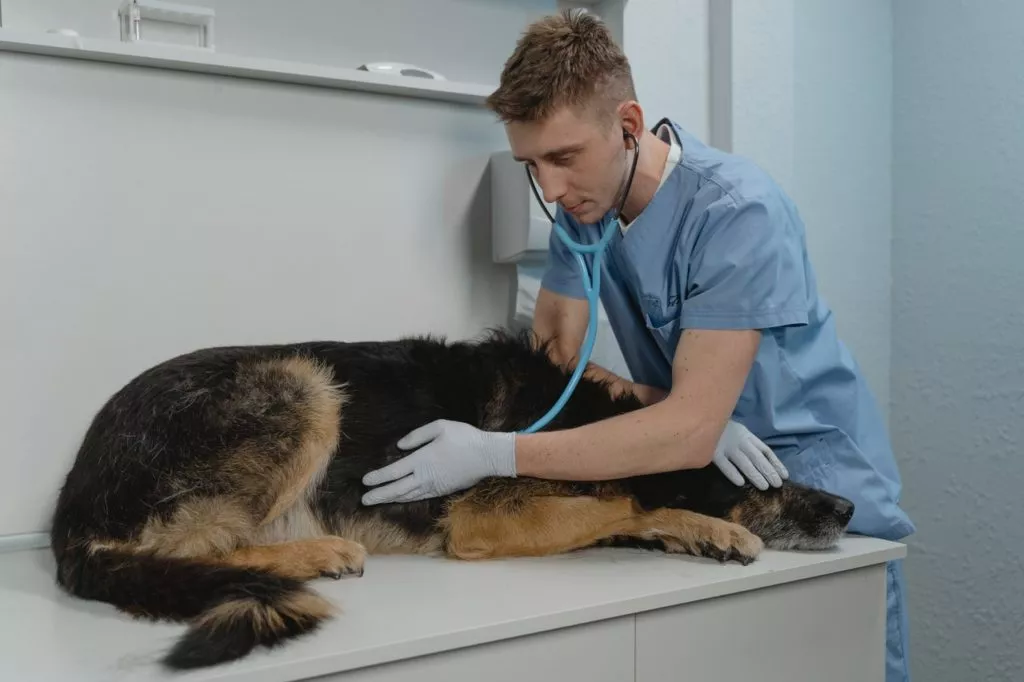Aspiring to be a vet is a noble ambition to hold, and one that many people adopt from an early age when they develop a love of animals.
Actually achieving the goal of working in your very own veterinary practice is one that requires a lot of hard work and dedication. It also helps to understand the skills you’ll need to develop and nurture to ensure a long and happy career.
To that end, let’s go over the skills that every good vet has to bring to the table in order to thrive while helping creatures of all shapes and sizes.

An affinity for tech
In the modern age, vets are expected to adapt to the use of new technologies quite regularly, so having excellent computer literacy and a willingness to learn how to use cutting-edge tools and solutions is important.
For example, in recent years there has been a move to vets providing online consultations, allowing pet owners to talk through issues facing their animals without needing to attend in-person meetings.
Being able to handle the computer equipment and accessories, as well as the software, which is necessary to conduct virtual meetings like this will stand you in good stead.
The ability to communicate effectively
Communication skills are useful in lots of professions, and vets are especially in need of abilities focusing on the way they interact with other people, both colleagues and clients alike.
While your patients might not be able to talk back, their owners will have all sorts of insights into their conditions that you need to extract and interpret accurately, in order to diagnose health disorders and decide on the right course of treatment.
Thus effective communication in a veterinary context is not just about getting your own point across and ensuring that others understand you, but also about learning how to listen and getting better at absorbing information, as well as responding appropriately to the emotions and intentions of others, even if they are underneath the surface of the actual words they use.
Manual dexterity
Vets work with their hands a lot of the time, and being able to remain dextrous while you have your hands in and around sensitive, injured areas of animals’ bodies is a skill that is partly innate and partly one you can learn with practice.
Like doctors and surgeons, vets cannot afford to be clumsy or imprecise with their movements, as the consequences can be dire. Again, even if you don’t think that you are the most dextrous person at the moment, that doesn’t preclude you from becoming a vet; it’s just something to think about before you go all-in on this career path.
Composedness under pressure
Vets often have to cope with medical emergencies involving animals, and this can include carrying out surgical procedures on pets that are in distress and serious danger. It also means dealing with owners who may be in a heightened state of emotion in their own right, all of which can create an atmosphere of stress and pressure.
As such, you have to be equipped with the potential to keep a level head even if those around you are losing theirs. This also means learning to be patient, and not making mistakes because you are rushing.
The more experience you get, the more capable you will be to remain calm whatever the job might throw at you. But there are some people for whom the pressure of life as a vet is simply untenable.
Training in medicine and biology
It takes years of training to be a vet, and as part of this process, you’ll learn all about the biological underpinnings of animals, as well as the medical issues that they can encounter and the kinds of treatment we can provide to counteract them.
These skills are codified by standard training practices, and you’ll also have to get to grips with animal dentistry as well, because vets are also expected to cater to the oral health issues of their furry patients, unlike human doctors.
Having patience and persistence will play to your advantage when training to be a vet, and it’s perfectly normal for veterinary schools to see people leaving courses before completing their studies because of the intensive and long-term nature of this process.
Providing comprehensive customer service
At the end of the day, a vet is responsible for running a business like any other, and that means being able to attract and retain customers by offering a high quality of service and also being an amenable and friendly person for clients to deal with each time they need your assistance.
If you don’t uphold a decent customer service record, then you could find that pet owners will look elsewhere for their future veterinary needs. Thus you have to remain competitive and give people a compelling reason to keep coming back to you.
Paying attention to the little things
Last but not least, attention to detail is a skill worth nurturing as an aspiring vet, as you’ll need to look at problems at both the micro and the macro level in order to find the right solution.
Again, this goes hand in hand with the patience and persistence that working as a vet will ask of those who enter training.
If you thought that becoming a vet might be a cakewalk, hopefully, this misconception has been thoroughly dispelled. But if your skills and your ambitions align, then it could be the perfect career.


